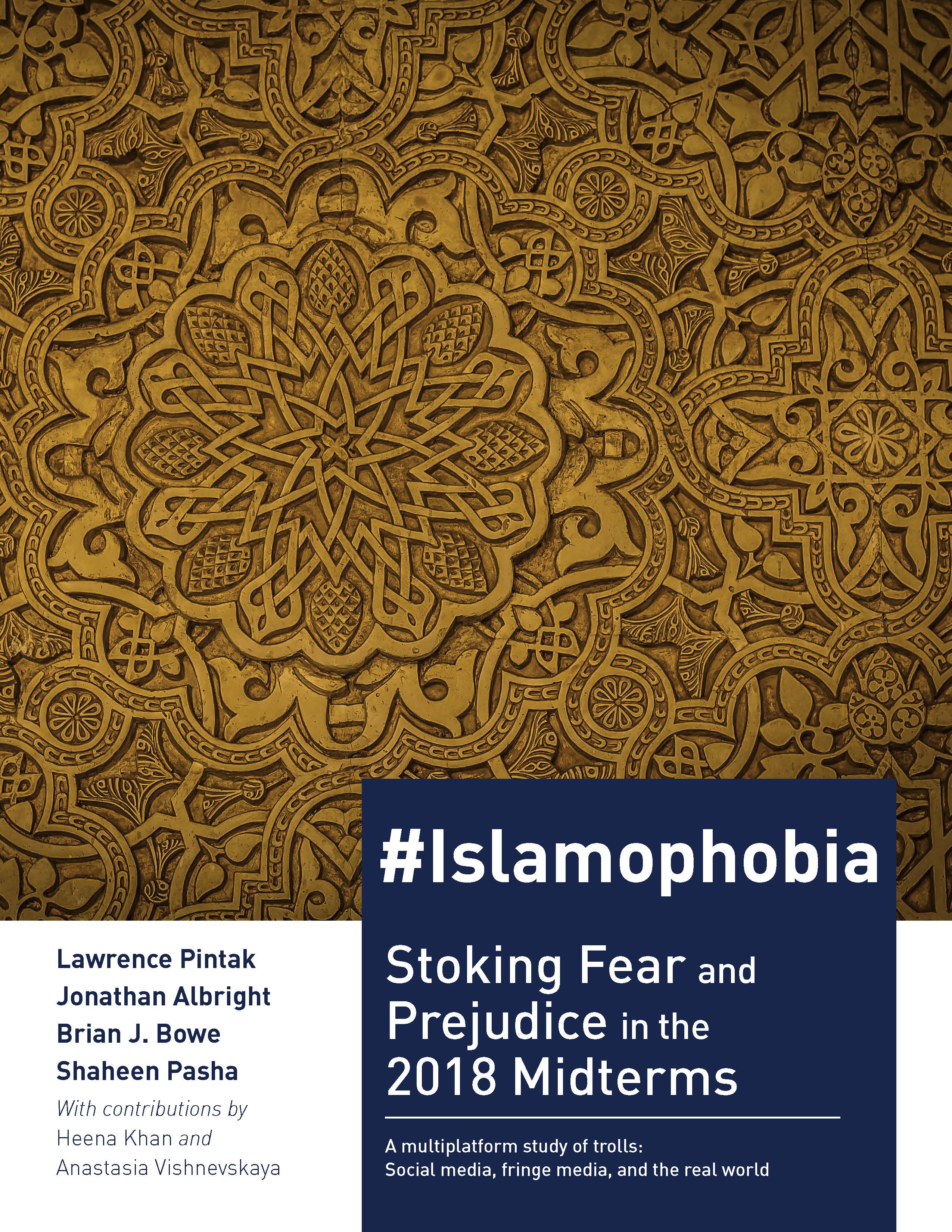Description
This report examines the campaign experiences of Rep. Ilhan Omar, Rep. Rashida Tlaib, and other Muslim candidates who ran in the 2018 US midterm elections. While many Muslim candidates reported limited encounters with Islamophobia among their constituents, a social media narrative of manufactured outrage was disproportionately Islamophobic, xenophobic, racist, and misogynistic. It was heavily influenced by a small number of agents provocateurs, whose hate-filled messages and disinformation were amplified by networks of accounts operating on a scale that signals the involvement of organized networks. These operations largely replaced Breitbart and other extreme-right media entities that were the primary source of anti-Muslim dialogue in the 2016 presidential campaign. They spread hate speech like a virus on social media through both human interaction and the use of bots, sockpuppets, and automated “cyborg” accounts, poisoning the political narrative, drawing in both likeminded and unsuspecting individuals, and disproportionately amplifying—and, for some, normalizing—the message of intolerance.
Download #Islamophobia: Stoking Fear and Prejudice in the 2018 Midterms here.

